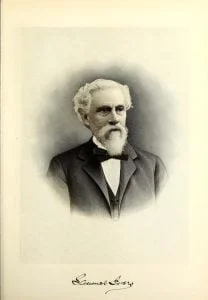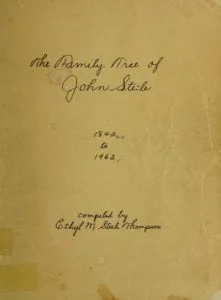Ivers Family of Dedham, MA
IVERS (New Bedford family). The name Ivers seems one uncommon in New England annals and the family by no means numerous. At Dedham are fragmentary records of the Ivers family name, but nothing of an early date.
William and Gregory Ivers, brothers, appear in Boston in the early part of the eighteenth century. They are said to have come about 1720 with the pioneer Scotch settlers from the North of Ireland. William Ivers married in Boston April 28, 1724, Jane Barber, the ceremony being performed by a Presbyterian minister. Jane Ivers died at Boston in 1789; her will, made April 29, 1776, proved April 13, 1789, Capt. Job Prince, executor, mentions sons James and Thomas, probably the only ones living at the date of making the will.


